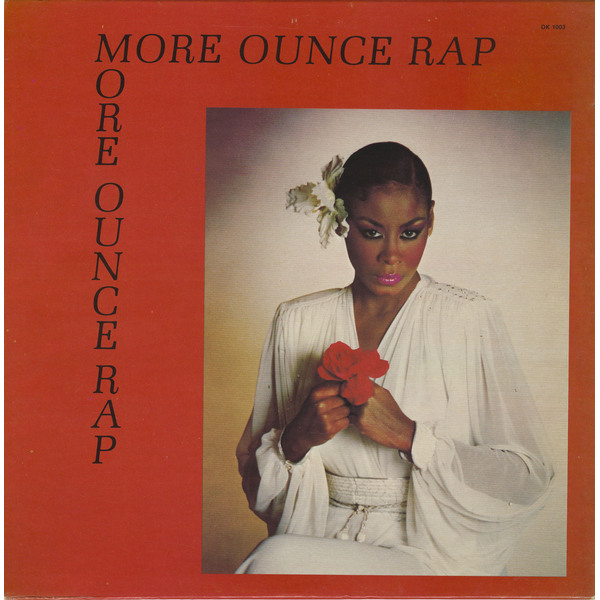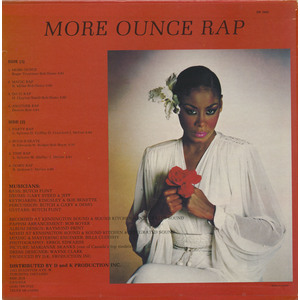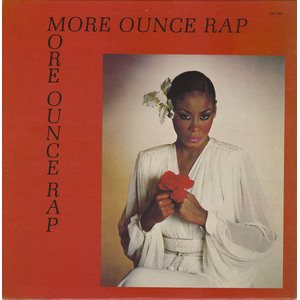Information/Write-up
Demetrius “Demo” Cates was born on November 13, 1948, in Detroit, Michigan, where his musical journey began in a household filled with rhythm and soul. Encouraged by his mother, who gave him his first saxophone at the age of ten, Demo immersed himself in the sounds of jazz legends like Charlie Parker, John Coltrane, Cannonball Adderley, and Eddie Harris. By his mid-teens, he had already formed his first group, Demetrius and the Gladiators, and was performing throughout the Detroit area. At just sixteen, he co-founded The Fabulous Counts with Mose Davis, Leroy Emmanuel, and Andrew Gibson—a group that would become one of Detroit’s most dynamic funk and soul ensembles of the late 1960s. Their blistering instrumentals and tight grooves were showcased on the 1969 LP Jan Jan and its follow-up What’s Up Front That Counts (1971), both of which have since become cult classics and frequently sampled by hip-hop producers for their raw, rhythmic power.
The Fabulous Counts toured extensively through the U.S. and Canada, playing on a circuit that included New York, Boston, Philadelphia, Montreal, and Toronto. It was in Toronto, while recording part of What’s Up Front That Counts, that Demo found a city whose energy and diversity mirrored his own musical ambitions. Drawn to its growing jazz and reggae scenes, he chose to settle there permanently. Toronto in the 1970s was a haven for creative experimentation, and Demo quickly became part of its heartbeat, performing in clubs, collaborating with artists like Wayne St. John and jazz guitarist Lenny Breau, and establishing himself as a versatile session player.
By the early 1980s, Demo Cates had emerged as a powerful solo artist, releasing a steady stream of albums that reflected his expansive musical vision. Over an eleven-year period, he recorded fourteen LPs for labels such as Scorpio, Abraham, Imperial, and S.I.G.H.T., blending elements of jazz, soul, reggae, and funk into a style uniquely his own. His 1981 debut Memories of Moments was a turning point—a lush, confident record that captured his smooth vocals and fluid saxophone tone, both rooted in his Detroit jazz upbringing yet coloured by Toronto’s cosmopolitan influence. As Norman (Otis) Richmond wrote in the album’s liner notes, Demo envisioned Toronto as “a musical capital of the North,” where Black, Caribbean, and Canadian influences could fuse into something entirely new.
Demo’s artistry carried him to the forefront of Canadian soul music. He was twice nominated for the Juno Award for R&B/Soul Recording of the Year—first in 1985 for Memories of Moments and again in 1989 for Secret Love—marking him as one of the few Black artists in Canada at the time to receive such national recognition. His songs were warm, romantic, and effortlessly sophisticated, and his live performances were known for their charisma and emotional connection. But beyond his own catalog, Demo was also a pioneer in Canadian hip hop: in 1981 he collaborated with Bobby Boyer and Jay W. McGee on Rap the Night Away, recognized as the first full-length hip-hop album ever recorded in Canada. This groundbreaking project positioned him at the crossroads of two musical revolutions—jazz and soul on one side, and the emerging rap movement on the other.
Though best known as a saxophonist and singer, Demo Cates also found success as an actor, appearing in numerous television series and films. His screen credits include Forever Knight, Goosebumps, The Jane Show, Blues Brothers 2000, and A Raisin in the Sun, where his natural presence translated seamlessly from stage to screen. Whether performing on camera or on stage, he brought the same calm confidence and soulfulness that defined his music.
Through it all, Demo’s sound has remained timeless—an elegant synthesis of his Detroit roots and his Toronto reinvention. He carried the spirit of Motown and the jazz tradition north of the border, shaping Canada’s R&B landscape while building bridges between genres and cultures. His music, rich with melody and message, continues to resonate with listeners who value authenticity and soul. From the Motor City to the Great White North, Demo Cates forged a legacy of innovation, perseverance, and artistic generosity—an enduring reminder that great music knows no borders.
-Robert Williston
Demo Cates: vocals, percussion
Butch Flint: bass, guitars, percussion
Gary Steed: drums, percussion
Jeff: drums
Kingsley: keyboards
Ikie Benette: keyboards
Produced by D.K. Production Inc.
Engineered and mixed by Bills Cuddihey
Rappin’ arrangements by Bob Boyer
Recorded and mixed at Kensington Sound, Sound Kitchen & Integrated Sound, Toronto, Ontario
Mastered by Bills Cuddihey
Photography by Errol Edwards
Picture: Marianne Skanks (one of Canada's top models)
Dress design by Wayne Clark
Album design by Raymond Print
Distributed by D and K Production Inc.
1538 Eglinton Ave. W., Toronto, Ontario, Canada M6E 2G9
Track listing:
A1 More Ounce – Roger Troutman, Bob Boyer, Demo Cates
A2 Magic Rap – R. Miller, Bob Boyer, Demo Cates
A3 Do It Rap – H. Clayton, Sladdi, Bob Boyer, Demo Cates
A4 Another Rap – Deacon, Bob Boyer
B1 Party Rap – L. Sylvers, D. Griffey, D. Crawford, Jay McGee
B2 Bugs-B-Skate – B. Edwards, N. Rodger, Bob Boyer
B3 Time Rap – L. Sylvers, W. Shelby, Jay McGee
B4 Down Rap – R. Jackson, Jay McGee



No Comments